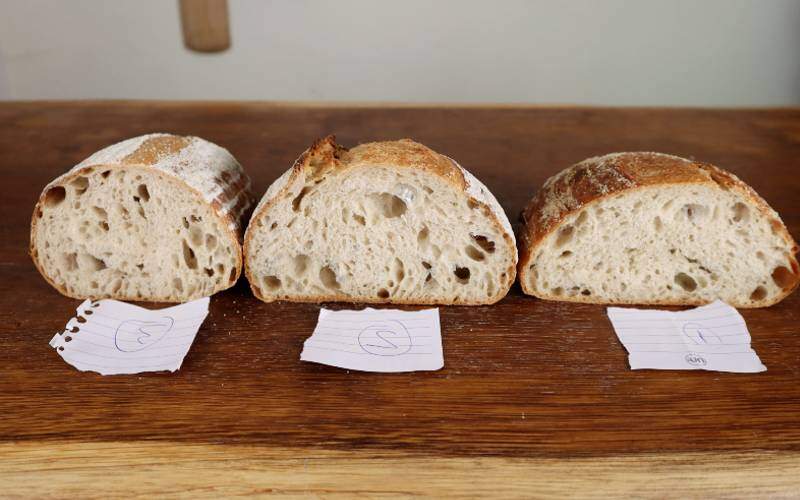Get interesting information about How To Know When Your Sourdough Is Done Proofing, this article is specially curated for you from various reliable sources.
If you’ve tried your hand at sourdough baking, you know that proofing is a crucial step in the process. It’s what gives your bread its characteristic sour flavor and airy texture. But how do you know when your sourdough is done proofing? There are a few key indicators to look for.

How To Know When Your Sourdough Is Done Proofing
The Poke Test
The poke test is a simple but effective way to check if your sourdough is done proofing. Gently poke the dough with your finger. If it springs back immediately, it’s not quite ready. If it leaves a slight indentation that slowly fills back in, it’s ready to bake.
The Float Test
The float test is another reliable way to check if your sourdough is done proofing. Drop a small piece of dough into a glass of water. If it floats, your sourdough is ready to bake. If it sinks, it needs to proof for a little longer.
Time
Time is also a factor to consider when proofing sourdough. The ideal proofing time will vary depending on the temperature of your kitchen and the activity of your starter. In general, sourdough should proof for 8-12 hours at room temperature or 24-48 hours in the refrigerator.
Other Signs
In addition to the poke test, the float test, and time, there are a few other signs that can indicate that your sourdough is done proofing. These include:
- The dough has doubled in size.
- The surface of the dough is slightly domed.
- The dough is slightly sticky to the touch.
Tips and Expert Advice
Here are a few tips and expert advice for proofing sourdough:
Temperature
The ideal temperature for proofing sourdough is between 75-80°F (24-27°C). If your kitchen is too cold, the sourdough will proof too slowly. If it’s too warm, it will proof too quickly and may overproof.
Humidity
Humidity is also important for proofing sourdough. If the air is too dry, the sourdough will form a crust and will not proof properly. If the air is too humid, the sourdough will become too wet and may collapse.
Patience
Proofing sourdough takes time. Don’t be tempted to rush the process. If you proof your sourdough for too short a time, it will not have time to develop its characteristic flavor and texture. If you proof it for too long, it may overproof and become dense and gummy.
FAQ
Q: What happens if I overproof my sourdough?
A: Overproofing can cause your sourdough to become dense and gummy. It may also lose its sour flavor.
Q: What can I do if my sourdough is not proofing?
A: If your sourdough is not proofing, there are a few things you can try. First, check the temperature of your kitchen. If it’s too cold, try moving your sourdough to a warmer location. You can also try feeding your starter with some fresh flour and water.
Conclusion
Proofing sourdough is an essential step in the baking process. By following these tips and advice, you can ensure that your sourdough is proofed to perfection every time.
Are you interested in learning more about sourdough baking? If so, be sure to check out our other articles on the topic.
How To Know When Your Sourdough Is Done Proofing

Image: www.pinterest.com
Thank you for visiting our website and taking the time to read How To Know When Your Sourdough Is Done Proofing. We hope you find benefits from this article.